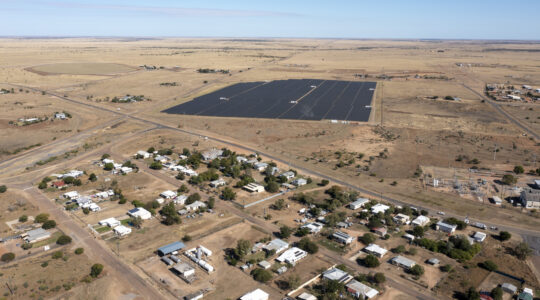A report on the impact of new Federal employment laws has shown an increase in collective bargaining and real wages since the legislation was passed, but has been criticised by business groups for not suggesting major changes.
Federal Employment and Workplace Relations Minister Murray Watt said an independent interim review of the Secure Jobs, Better Pay Act found, on the whole, it was “achieving the Australian Government’s intent, operating appropriately and effectively and with minimal unintended consequences”.
Minister Watt said the reviewers found that, since the passage of the reforms in late 2022, “collective bargaining was increasing, especially the coverage of collective agreements, and wages have started to improve”.
He said there had been a 27 percent rise in the number of employees covered by a collective agreement between September 2022 and September 2024.
“Real wages have gradually increased each quarter after Secure Jobs, Better Pay was passed.”
Minister Watt said the report recommended a further review be undertaken in the future, to look at the benefits of long-term measures.
Australian Industry Group Chief Executive Innes Willox said the report was a missed opportunity to identify major deficiencies in the legislation.
Mr Willox said there was an absence of any recommendations relating to the abolition of the Australian Building and Construction Commission, “notwithstanding the scandalous revelations that have come to light since it was abolished”.
He said multi-employer bargaining remained a significant threat to jobs and enterprises and to the capacity for the economy to improve productivity and provide a sustainable foundation for real wage increases.
“The report’s observation that more time is needed to properly assess the impact and operation of many very major changes to our workplace relations system is not unexpected.
“It’s clear the full impacts on jobs, incomes, enterprises and productivity need to be better understood.”
Business Council of Australia Chief Executive Bran Black said it was disappointing the review did not take on employers’ calls for amendments to the Fair Work Act, which included changes to intractable bargaining and forced bargaining provisions that were impacting some of the country’s most productive sectors.
Mr Black said it was also remarkable no changes were recommended to the laws given last year’s allegations of systemic misconduct across the CFMEU.
“It’s astonishing that recent allegations of criminal behaviour and systemic corruption across the CFMEU did not prompt the review panel to recommend bringing back a building industry regulator,” he said.
Submissions are now open on the interim report, due by February 16, with a final report due to be provided to Government no later than March 31.








